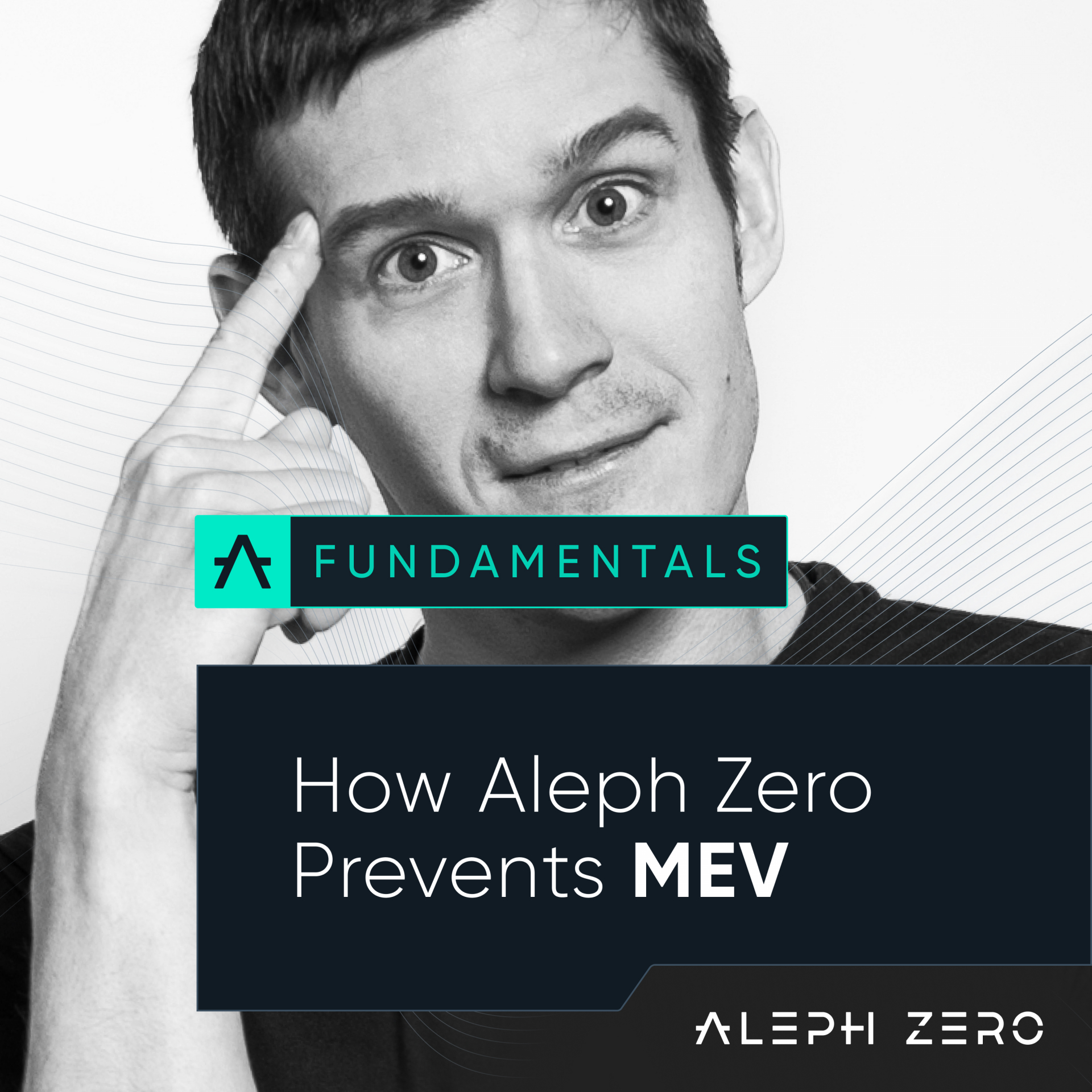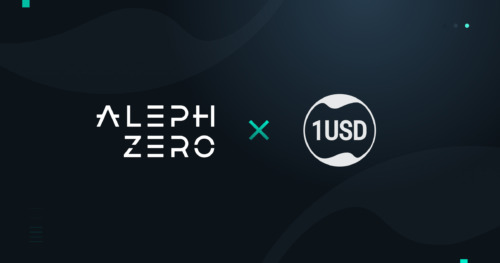How Aleph Zero Prevents MEV: Podcast Key Takeaways
Sep 1, 2023

In the newest episode of the Aleph Zero Podcast, we meet with Filip Bielejec, Ph.D, to discuss the maximal extractable value (MEV) challenge, its effects on blockchains, their users, and most importantly, how Aleph Zero mitigates the adverse effects of this phenomenon.
Listen to the full episode on the platform of your choice
TL;DL
Too long; didn’t listen
- MEV is a practice through which miners and validators can maximize their profits on a blockchain by including, excluding, or reordering transactions during block production.
- Some popular techniques used by malicious miners and validators include:
- Front-running: occurs when miners/validators who have knowledge of pending trades place their own transactions earlier.
- Sandwich attacks occur when a malicious actor front and back runs a pending transaction to capitalize on the price fluctuations that occur.
- MEV is harmful because it changes the motivations of the miners to reap the benefits of order manipulation instead of placing the transactions in their proper order.
- MEV is a result of the permissionless nature of blockchain technology. Centralized financial systems do not have these problems, but they come at the cost of possessing central authority figures.
- Modern blockchains should be built in an “MEV-conscious manner” to mitigate the negative repercussions of this process while retaining their decentralization.
- There’s an organization called Flashbots dedicated to researching MEV and developing products to reduce the harmful effects of this practice.
- One of the solutions they devised to minimize the adverse effects of transactions being reordered for malicious intent is to create a marketplace in which users can bid on their place in block production. This limits the incentive for malpractice.
- Aleph Zero aims to prevent MEV by ensuring privacy, not pseudonymity, for users and their online activities.
- The Aleph Zero Shielder will shield transactions from the validators, removing the incentive for re-ordering transactions. Only the aggregate amounts traded will be public knowledge.
- Other areas where Aleph Zero will introduce privacy features include shielding staking, voting, and asset pools.
Miners and Validators Behind MEV
The maximal extractable value challenge stems directly from the construction of permissionless systems. In these systems, we rely on individual actors without ties to central authority figures to decide on transaction ordering. This works well if everyone behaves honestly; however, in the event of malicious intent, it is very easy for miners/validators to reorder transactions for personal gain. These practices, such as front-running and sandwich trading, have become quite popular among many DeFi protocols, resulting in heated discussions on preventing them.
Filip Bielejec mentions that both of these techniques result in miners/validators abusing their position by ordering pending transactions in such a way as to maximize their own profit by gaming market fluctuations.
This practice is detrimental to the health of DeFi systems because it changes the incentive of the block producers from ordering transactions honestly. These problems only occur in permissionless settings, as centralized exchanges do not possess these issues due to the centralized authority figure determining block order. How can we prevent this from occurring and damaging the integrity of the DeFi space?
Solutions to MEV
During the episode, Filip Bielejec explained several solutions for minimizing the effect of MEV. He mentioned the work conducted by the Flashbots organization, a team of researchers with several highly effective solutions for combatting MEV, such as introducing a marketplace for ordering transactions. By auctioning off the sequence in which transactions should be appended to the block, many of the incentives for MEV are thwarted, as users pay validators for a more privileged position. Of course, this comes at the cost of higher gas fees for users.
Worthy of note is that MEV is a challenge that permissionless systems will have to face, and Filip Bielejec stresses the importance of building blockchain systems in an MEV-conscious manner.
Aleph Zero’s Solutions to MEV
Aleph Zero’s solutions to MEV involve using our privacy-preserving capabilities to create private DeFi. In current blockchain systems, transactions, their contents, and placement in the block are transparent to the public. This allows malicious validators to order the transactions at will for maximum personal benefit. What if we can shield this data from them? That is the solution Aleph Zero proposes. The Aleph Zero Shielder aims to prevent validators from seeing the contents of individual transactions, thus removing the possibility of MEV. Filip goes on to explain that the transaction shielder is just the start, and Aleph Zero aims to privatize staking, on-chain voting, and asset pools. Through this system, only the final results or aggregates will be known to the public, while private actions will be protected from prying eyes.
Listen podcast

EP. 10 How Aleph Zero Prevents MEV in DeFi Protocols
The 10th episode of the Aleph Zero Podcast is all about the maximum extractable value (MEV) challenge, in which we will dive into the details of transaction ordering. Joining us will be Filip Bielejec, Ph.D, who will explain the good, the bad and how Aleph Zero aims to prevent the adverse side effects of this phenomenon for blockchain ecosystems.


